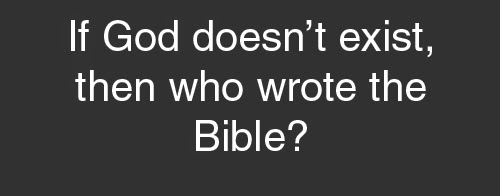Why Doesn’t the Bible Prove God Exists?

By WizenedSage (Galen Rose) ~ I f you think about it, there’s a very strange thing going on in the Bible. The whole thing is about this god and his human creations and their tense, ever-changing relationship. There is chapter after chapter about how god did this, and did that, and wants humans to do this and not that, and how he punishes humans in this way or that, for doing this or that thing which he “abhors.” There is so much written in the Bible – as it’s a very long book – about this god and his make-up, his thoughts, his commands, his angers and jealousies, his actions and regrets, that people generally just accept the basic story of this god’s existence and history. But, there’s one very important thing that’s missing from this long, long story about god, and that’s the demonstration or other proof that this god actually exists. Shouldn’t that proof have been right up front in the book, even before Genesis ? Genesis tells us where the world came from; it came from god....
















